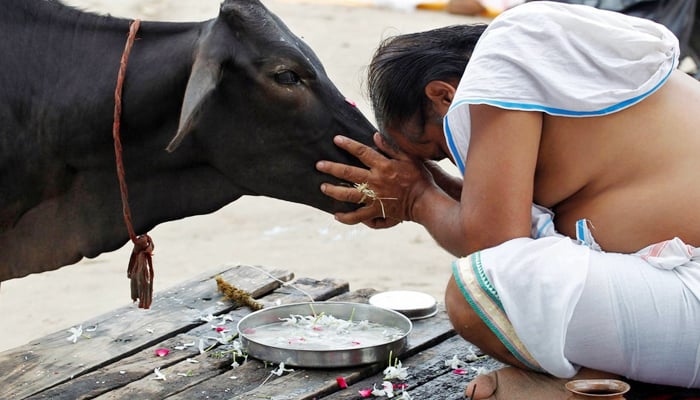India has a bill of rights for cows

India’s Bill of Rights for Cows: Protecting Sacred Animals

India, a country known for its rich cultural heritage, has a long-standing tradition of reverence towards animals. Among these, cows hold a special place in Indian society. Cows are considered sacred and are revered as a symbol of prosperity, abundance, and motherhood. To safeguard the welfare and protection of these sacred animals, India has implemented a unique measure known as the “Bill of Rights for Cows.”

The origin of the Cow Protection Movement in India can be traced back to the early 19th century. Led by various religious and social organizations, this movement aims to preserve the sanctity of cows and promote their well-being. As a result, the Indian government enacted several laws and developed policies to support the cause.
Under the Indian Constitution, cows hold a special status and enjoy legal protection. This is evident in Article 48 of the Directive Principles of State Policy, which states that the state shall endeavor to organize agriculture and animal husbandry on modern and scientific lines and shall take steps for preserving and improving the breeds and prohibiting the slaughter of cows and calves.
To give effect to this constitutional provision, several states in India have enacted legislations to prevent the slaughter of cows and the sale of cow meat. These laws vary from state to state but share a common objective of protecting cows from harm. Violations of these laws can lead to legal consequences, including fines and imprisonment.
In addition to legal measures, various governmental and non-governmental organizations work relentlessly to provide shelter and support to stray cows. These organizations establish cow shelters called “gaushalas,” where cows are cared for, providing them with food, water, and medical aid. Cow protection organizations also conduct awareness campaigns to educate the public about the significance of cows in Indian culture and the importance of their well-being.
The Bill of Rights for Cows in India is a significant expression of the country’s cultural and religious values. It reflects the deep-rooted belief in the sanctity of cows and the desire to protect them from harm. These measures not only contribute to the preservation of India’s cultural heritage but also demonstrate the nation’s commitment to animal welfare.
It is important to note that the Bill of Rights for Cows is not without its critics. Some argue that these laws prioritize animal protection over human welfare and economic considerations. The ban on cow slaughter has sparked debates on freedom of choice, cultural diversity, and economic implications.
However, despite the ongoing debates and disagreements, India’s commitment to the welfare and protection of cows remains steadfast. The Cow Protection Movement and the Bill of Rights for Cows aim to strike a balance between cultural preservation and human progress, ensuring that these sacred animals are treated with respect and care.
In conclusion, India’s Bill of Rights for Cows stands as a testament to the country’s deep-rooted cultural values and commitment to animal welfare. The reverence towards cows in Indian society is reflected in legal measures, government support, and public initiatives aimed at protecting these sacred animals. As India continues to evolve, the challenge lies in finding a harmonious balance between cultural preservation and societal progress.
Related Posts
Quick Links
Legal Stuff

